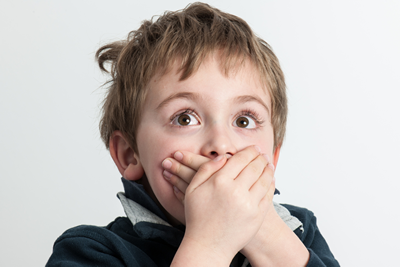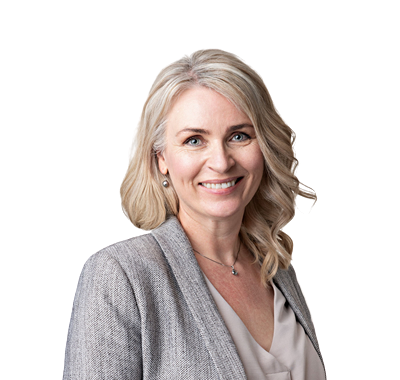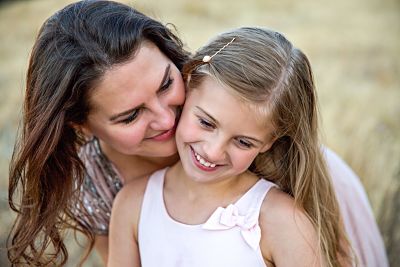The one skill you need to parent well
I want to encourage you to be self-compassionate on your journey as a parent. You were not born as an expert parent, it wasn’t covered in any school or college curriculum. Even if you have more than one child, you have not parented each child, who has different needs and most likely a different temperament to their sibling through each different age and stage.
For me, given that I do a lot of early educator work, I like to think that I’m quite good at parenting pre-school children… but the problem I’m having is that my children are no longer pre-school age! In fact, my eldest has hit high school, so like every other parent, I’m working out how to do this new stage, because parenting isn’t anything like being a Psychologist. Parenting is a role that changes all the time, and the truth is that some of us find some of the stages easier than others. And some children are easier to parent – at least some of the time. It does help to have a lot of text book knowledge of parenting, but without the hands on work, it’s hard to comprehend the sheer joy, and the incredible challenge that parenting brings.
But wherever we are in the parenting journey, just as we become an “expert” and think we have it in the bag, our children change! Parenting – it’s the most complicated and shifting job in the world! It means that parents are placed every day in a situation where they are always learning and adapting.
Imagine for a moment that you had a paid role that was similar. You might spend your first 3 months working out how to do the job, you start to get the hang of it, and your boss changes all the equipment and expects you to work it out again! That would not go down well for most employees. And not only that, but in this role, the goalposts change all the time. No-one is quite sure how to do it (although everyone as an opinion), the job itself makes it hard for you to take tea breaks, and often you have to work through the night…and keep going the next day without a rest!
We’d all quit that job, wouldn’t we? And yet parenting, for all its demands, it is also the most rewarding role on the planet.
So how do we find balance in this parenting journey? Sometimes, the first step is to accept that everyone finds parenting hard – perhaps not every day, but some days. That means that self-compassion and support are important. Having a community, a bit of a tribe of like-minded friends and family who support each other is an important foundation: because doing the parenting journey alone is incredibly hard, and almost impossible.
In my clinical practice, I’m a huge advocate for mums (and dads) joining groups such as playgroups and parents’ groups – it helps enormously to hear the stories of others who have similar challenges, and to spend time with others who ‘get it’. It makes us feel normal again.
Research suggests that one of the big reasons that parenting is so difficult is because it tests our skills of emotional regulation. For most of us, we have developed reasonable amounts of regulation prior to becoming parents – we can tolerate a wide variety of experiences and navigate them in day to day life. But we may not have learned how to regulate our own emotions when exhausted. We may not know how to cope when we don’t have the skills to solve a problem, when we feel under-resourced and over-whelmed. And we may never have held responsibility for someone else’s life before. It’s a huge amount of responsibility – and responsibility can feel overwhelming if we don’t know how to manage it well.
Working with parents, I see them being incredibly compassionate when their children are learning and developing skills. Yet in the next breath having unrealistic expectations and demanding perfection from themselves. So many of them feel as if they are failing when their child struggles or when they lack capacity to be the perfect parent who always has it together.
But I wonder what your skills are like for dealing with a tired child. How many times have you practiced being at the supermarket while your child lies on the ground throwing a tantrum? How many times have you been to a class where they taught you about how to remain patient as your child (the one you are responsible for) takes her seat-belt off (puts herself in danger) for the 15th time? Who taught you to stay calm as your child unclips their seat-belt and screams when you are stuck in busy traffic? And how often did you practice patience and self-compassion when you had a list of things that needed to be done, but for whatever reason didn’t tick any of them off that day despite your best efforts?
Where was that place where you learned to function with no sleep at all? How did you learn to remain calm while you are sick yourself, and your child is sick and dependent on you? When did you develop that amazing, superhuman level of patience, distress tolerance, grit, resilience and problem-solving knowledge?
I don’t know that any of us have learned it. It seems more likely that these skills will be developed through practice… Our children will teach us. They will teach us to have these skills of patience and compassion, of grit and wisdom through the experiences that they share with us. We will grow through the challenges of parenting.
And finally, just as we seem to get the hang of it, it’s most likely that our children will be independent. Our roles will change again.
In the meantime, whilst we navigate this challenging role, and build our capacity for emotional regulation as parents, we need to take responsibility for our own self-care. We need to make compassion our friend as we think about our own emotional regulation. It’s challenging to learn new skills, and if you are learning new skills and you are also sleep deprived, it’s even harder. To do effective parenting, you need to take good care of yourself before you can take good care of your child.
There’s a lovely phrase called putting your own gas mask on first. You know, if you’re on an airplane, and those little masks drop from the ceiling, the flight attendants always tell you that you have to put your own mask on first before you help anyone else. Because otherwise you won’t be able to help anyone else. Well, that’s true in day to day parenting too. If you are a tired parent, you might be a cranky parent. If you are feeding your children, but you’re forgetting to eat yourself, or you are just eating the scraps from your child’s plate because it’s quicker and easier, that is not good self-care. If you are driving your children to a play-date but haven’t slept yourself, that’s not good self-care. When we do good self-care, we’ve got much more energy for the path that we’re on. Parenting isn’t just all about our children growing – it’s about our growth too.
And self-compassion is an incredibly important part of our growth and wisdom. When we are compassionate to ourselves and look after ourselves, it makes us a better role model. I wonder how easy it is to be a good role model when you are flat out, rushing, tired and haven’t eaten well. It’s much easier to be a good role model when you have five minutes to sit down and think about what you want to do, to choose mindfully, and to allow yourself to be less than perfect.
The thing is – parenting doesn’t always give you five minutes to sit down to think about how you want to parent: You have to decide to learn how to take those five minutes for yourself instead.
_________________________________
Article by Dr Amanda Mullin, Founder of Mindworx Psychology, Doctor of Clinical Psychology
Photo by Irina Murza

become a member
Sign Up to our newsletter to become a Mindworx Psychology Online Member. Get priority access to our online courses masterclasses, and explore top tips and strategies from our team of Psychologists.

parenting an ADHD’er
Ten weeks of easy to digest, engaging online content. Learn all about ADHD, the different ways in which you can help your child, and practical strategies to manage inattention, impulsivity, big emotions and hyperactive behaviours.
Our Resources
Everything about Mindworx Psychology and about Mental Health and Wellbeing at your fingertips.
Search, browse & find resources
about author

Dr Amanda Mullin, Founder of Mindworx Psychology & Doctor of Clinical Psychology
subscribe to newsletter
Keep up to date with the latest in evidence based treatments
Our Location
Suite 206, 10 Century Circuit, Norwest Central, Baulkham Hills, NSW 2155
Fees & Insurance
You do not need a GP referral to book an appointment at Mindworx Psychology.
Medicare Rebates are available if you have a valid referral from a GP, Psychiatrist or Paediatrician.
Your Private Health Fund may offer cover for Psychology Services – you can check this directly with your fund.



